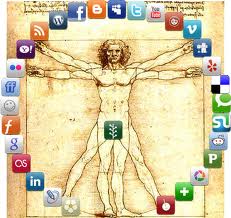 This is a brief story about how cool social media is and how it impacts public relations strategy to launch JD Match, a new online recruitment site for second-year law students, large law firms and law schools.
This is a brief story about how cool social media is and how it impacts public relations strategy to launch JD Match, a new online recruitment site for second-year law students, large law firms and law schools.
I’ve been working with Bruce MacEwen, Esq., an esteemed lawyer and highly credible legal consultant, and Janet Stanton, CEO of JD Match, who also are affiliated with Adam Smith, Esq., one of the most-respected online publications in the legal profession.
JD Match is an online recruiting site using a proprietary algorithm that will match second-year law students’ preferred law firms with law firms’ preferred students. The start-up is designed to address the flawed on-campus interviewing process during which the nation’s largest law firms spend thousands of dollars to recruit the best law students from the best colleges of law.
For several months, Soulati Media has developed the public relations and social media strategy with JD Match. The goal was to earn a story prior to noon on Monday, April 18, 2011 in the Wall Street Journal Law Blog prior to the April 20, 2011 live launch of the new website. Three other tier-one outlets would be called and given the embargoed news release in the afternoon of April 18.
The rest of the strategy for the April 20, 2011 launch of JD Match included:
The primary press release and customer story (K&L Gates, one of the largest law firms in the U.S., is the first charter member to sign with JD Match) would hit PR Newswire on April 20, 2011, and the Internet press release would hit via PR Web once the site went live, approximately 36 hours later.
At the time of this writing (11 p.m. ET, April 21, 2011), JD Match has not gone live. Leading up to today, here’s what’s unfolded since Monday, four days ago:
1. An excellent story appeared in the Wall Street Journal Law Blog via Ashby Jones on April 18, as planned.
2. Above the Law posted a brief mention of the news on April 18 by 5 p.m.
3. The American Lawyer editor-in-chief declined the story only to have his reporting staff contact JD Match for an interview the next day (they had seen the Wall Street Journal Law Blog post). The result was a wonderful Q&A with Bruce MacEwen you can read here. And, prior to this story running, AmLaw Daily developed a Facebook poll asking whether people think JD Match is going to change the face of associate recruiting.
4. The ABA Journal posted a lengthy story about JD Match on April 19. Its reporter had also read the Wall Street Journal Law Blog.
5. 3 Geeks and a Law Blog published a story and pushed it out on its syndicated service, to Twitter, and subscribers.
6. A student posted a question and blog post on LexisNexis Communities about JD Match.
7. A question was posed and answered by several folks on Quora about JD Match on April 19.
8. There are numerous students posting commentary on forums and blogs.
9. Because the site is not live yet, a contact form was created to capture visitors based on the “early news.” There have been close to 500 people who registered with an email address requesting a note when the site goes live.
10. Many people are communicating and commenting via Twitter and Facebook. My challenge was to tweet under the radar with a profile that said “coming soon.” Soulati Media tweeted that way for two months with the goal of earning 75 legal vertical followers; we succeeded.
Here’s some other interesting tidbits about this story:
*No news release has been distributed on any wire services (traditional or online).
*The exclusive was given to the Wall Street Journal Law Blog, and Bloomberg was disappointed they didn’t get the exclusive.
*From a single blog post in the nation’s top law blog, all the activity above has rolled out.
*Adam Smith Esq. posted a blog thanking its team who helped launch JD Match.
*More stories appear daily, and Google Alerts and Trackur are set up to secure the stories.
The wealth and breadth of exposure for JD Match without issuing a news release to the industry has been fantastic to watch unfold. We’ve not seen a traditional story appear in a printed outlet; the stories have all been online. Once the news is formally launched on the wire and via online distribution, after the site goes live, we’ll see how we handle the next wave.
Meanwhile, follow JD Match @JDMatch and on Facebook and LinkedIn (still under development). (When you get there, please say hello to yours truly…)








